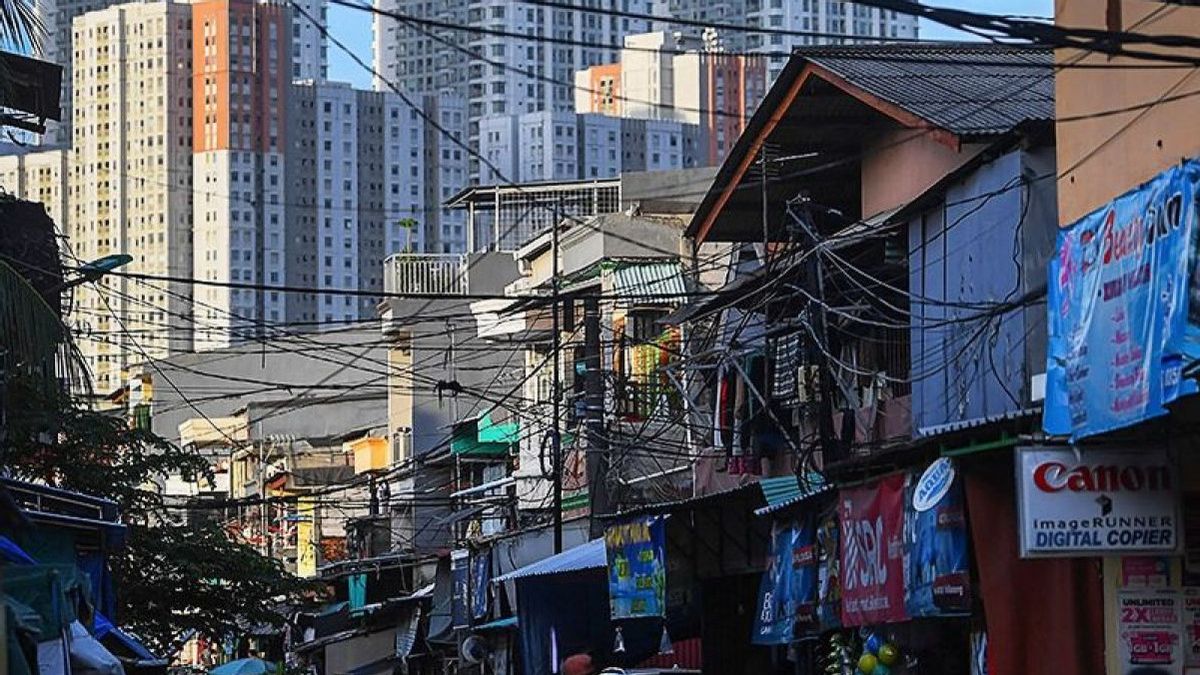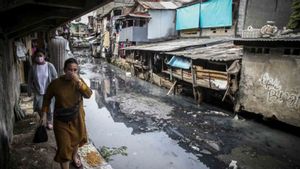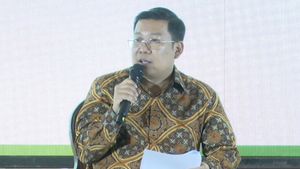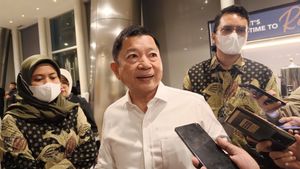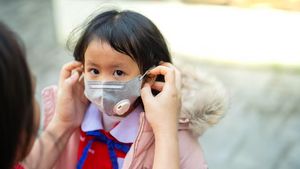JAKARTA - The Ministry of National Development Planning/National Development Planning Agency (PPN/Bappenas) stated a number of homework (PR) to reduce poverty rates in Indonesia in 2024.
Director of Poverty Reduction and Community Empowerment of the Ministry of National Development Planning/Bappenas Tirta Sutedjo said that the gap is quite large when viewed from the 2023 achievement and also the RPJMN target in 2024.
"Then, in 2045 we also have the mandate to be able to realize an advanced Indonesia equivalent to developed countries, where poverty is expected to be close to 0 percent," he said, quoting Antara.
As is known, there is a fairly wide distance between the poverty rate as of March 2023 which is 9.36 percent with a poverty rate target in the 2020-2024 National Medium-Term Development Plan (RPJMN) of 6.5-7.5 percent.
Likewise, the achievement of the extreme poverty rate as of March 2023 is 1.12 percent with the target extreme poverty rate in the 2020-2024 RPJMN ranging from 0-1 percent.
The latest data in 2023 released by BPS (Central Statistics Agency), the poverty rate in Indonesia is at 9.36 percent. For extreme poverty in 2023, it can be achieved below 1.12 percent, and if it is assumed that extreme poverty can be achieved below 1 percent, it seems that we will be able to reach approximately 0.5-0.7 percent in 2024," he said.
Bappenas is trying to change the methodology of measuring poverty rates that will be updated through collaboration with the National Team for the Acceleration of Poverty Reduction (TNP2K). This is because the methodology used has not changed since 1998 until now.
In the near future, it is said that it will report the latest methodology proposed to the Statistical Community Forum (FMS) so that it can be applied in the 2025-2029 RPJMN.
Furthermore, Tirta conveyed three main challenges to overcome poverty in Indonesia.
The first is the accuracy of targets and the sharpening of targets from government programs, so that it can be ascertained that people who need intervention in accordance with their vulnerabilities and needs.
Second, the quality of the program needs to be improved to ensure that all residents who need government intervention and from related parties receive assistance or assistance and facilitation in accordance with their various vulnerabilities.
SEE ALSO:
Finally, economic empowerment also needs to be carried out more optimally to increase leverage power, as well as develop quality human resources (HR) to support the implementation of the program along with supporting certification.
Tirta explained that reducing poverty levels requires a fairly diverse intervention approach by involving various programs, activities and stakeholders.
"This integration needs to be carried out to ensure that these programs are not fragmented, and coordination between K/L (Ministry/Institution) (as well as) between centers and regions can be carried out more optimally," said the Director of Poverty Reduction and Community Empowerment of the Ministry of National Development Planning/Bappenas.
The English, Chinese, Japanese, Arabic, and French versions are automatically generated by the AI. So there may still be inaccuracies in translating, please always see Indonesian as our main language. (system supported by DigitalSiber.id)
